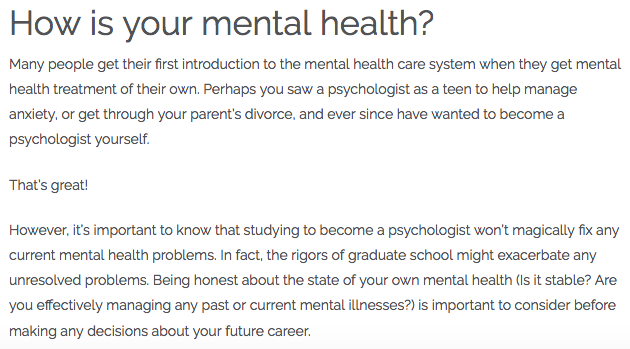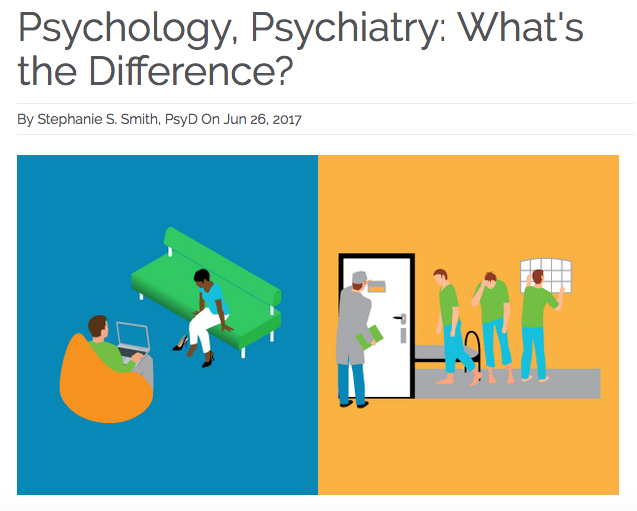Psychotherapy and counseling are more a part of our lives than ever. They’re talked about in TV shows, movies, the local paper and social media. Statements like:
I need to go to therapy!
She’s so crazy, she needs a shrink!
He needs to tell his psychologist about that!
are said all the time.
The thing is, there are lots of myths about therapy, psychologists, and counseling out there. I am going to take it upon myself to be the the mythbuster today. Here goes:
If you have at least one good friend you can’t benefit from therapy. Friends are awesome, and those who have one or two good ones are lucky. However, friends and mental health professionals are not equal. Why? Because sometimes there are things we aren’t comfortable sharing with our friends and we can’t guarantee that our friends will keep our secrets like a psychologist will. Furthermore, sometimes we have problems (alcohol addiction, marital woes, difficulty with parenting) that our friends aren’t prepared to help with.
Read more about why your best friend can’t be your therapist.
All of your time in therapy will be spent talking about your mother. Our moms have a lot to do with who we are (or aren’t) but it doesn’t mean that all your time in therapy will be spent talking about her. Sometimes therapy sessions involve delving into the past, but not always. Some folks come into my office with very specific, present-oriented goals and that can work out just fine – no mom-talk necessary!
Read more about innovations in psychotherapy over the years.
You’ll have to lie on a couch – and that’s just weird. OK, I admit that I do have a couch in my office (though I prefer to call it a “sofaâ€) but folks rarely lie down. Gone are those Freud-inspired days when patients rambled on while lying on a tufted velvet couch with the psychotherapist taking notes behind them. Sitting on comfortable chairs while looking at each other face to face is the norm these days – often with Starbucks or Diet Coke in hand. Sounds nice, doesn’t it?
Read more about what to expect in your first session with a psychologist.
If you see a psychologist you will be branded “crazy†and that label will follow you around forever. This is a valid concern. We’re all worried about our privacy – perhaps now more than ever. The good thing is, psychotherapy services and diagnoses are confidential (with a few exceptions). It’s important to really understand confidentiality and how it relates to your treatment, how you pay for treatment, and to whom your records are released when you enter therapy. Just ask your psychologist for an explanation on your first visit (even better: before you make an appointment). As for the “crazy†diagnosis? There’s no such thing!
Read more about first steps to take after being diagnosed with a mental illness.
Seeing a psychologist means you’re weak and can’t handle your own problems. “Handling our own problems†entails lots of different things, but from time to time it means asking for help. Sometimes it means asking your neighbor to watch your kids while you have a date night, or feed your bird while you’re on vacation. Other times it means asking for help with managing an addiction or anxious thoughts. It takes a lot of strength to reach out – perhaps even more than continuing to go it alone.
Read more about whether your drinking is problematic.
If you see a psychologist they can read – then change – your thoughts at will. Oh, if only I had that kind of power (picture me smirking Dr. Evil-style). OK, in all seriousness, I can’t read your thoughts and I certainly can’t change them to fit my own version of “right†and “wrongâ€. What I can do is be an attentive listener and help you become more aware of your own thoughts, behaviors and moods. And the hope is that I can assist you in changing yourself in ways that feel genuine and beneficial to you. No dark powers involved.
Read more about what your psychologist really thinks about you.
Are there myths that I forgot?
Things you’ve wondered about in terms of mental health treatment?
Let me know!





